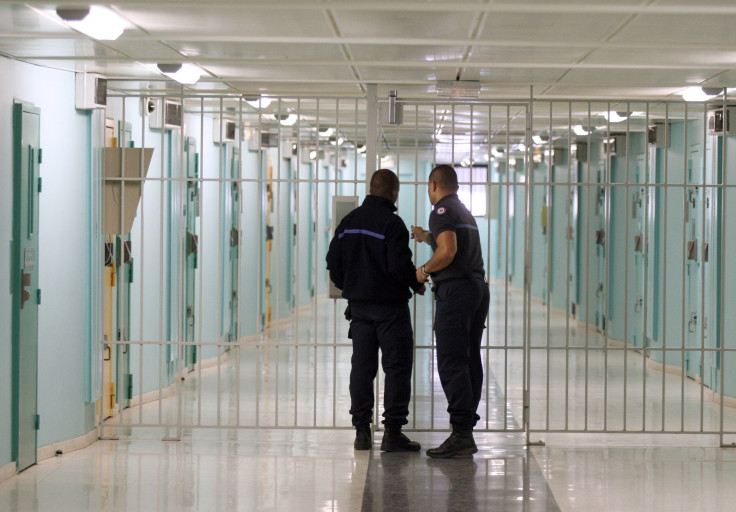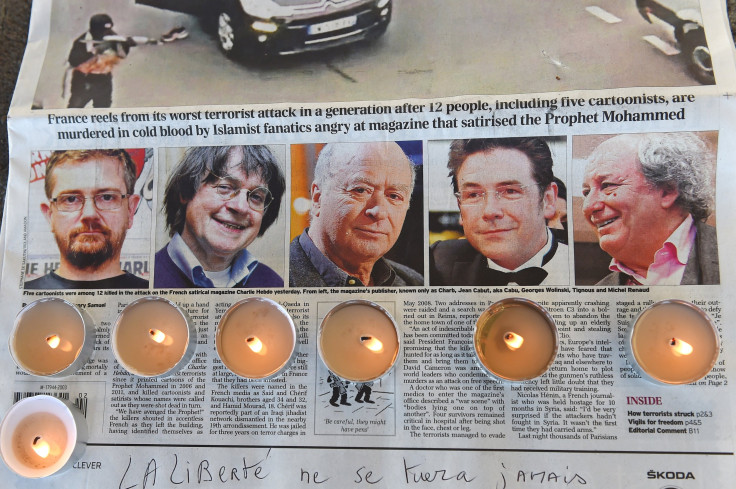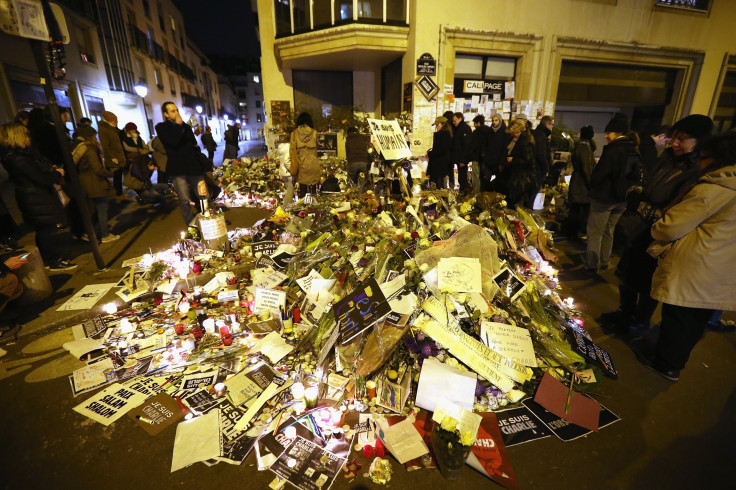Islamic Radicalization In French Prisons: Can Isolation Program Prevent Charlie Hebdo-Style Terror Attacks?

For the few dozen people in France living in cell blocks designated for inmates suspected of practicing radical Islam, life is isolating. Most inmates are closed in their cells for the majority of the day, without access to the internet or other forms of communication and a judge must give permission for them to use the phone in order to speak with family or lawyers. They pass their days speaking with each other, praying and waiting the months or years until their release.
“They have the feeling of being completely separated from other prisoners and even from all other human beings,” said Florian LaStelle, a French lawyer who has defended clients accused of attempting to join Islamic terror groups in Syria. “These are people who spend 22 hours out of 24 in a cell and their only form of communication is with other people who are suspected of being radicals,” he said.
To combat a growing threat of radicalization, the French government began a new segregation policy in several of the largest prisons in January 2015, weeks after Islamic terrorists Said and Chérif Kouachi stormed the offices of satirical weekly Charlie Hebdo, killing 12 people over the magazine’s cartoons of the Prophet Muhammad. The policy separates alleged Islamic extremists in order to allow for increased surveillance, while preventing them from spreading their ideology to the rest of the prison population. While some defense analysts have argued that isolation is a necessary evil, many experts said the policy has not helped curb terror because of its lack of focus on rehabilitation. It may even serve as a recruitment tool, reinforcing stereotypes that France is biased against practicing Muslims, critics said.
Imprisonment has helped facilitate a “criminal social ladder,” said Elie Tenenbaum, a terrorism and defense analyst for the French Institute of Foreign Relations, a think tank based out of Paris. “When you come out, you’re no longer a small-time criminal; now you’re in the big game,” he said.
Two of the terrorists involved in the January 2015 attacks on Charlie Hebdo and a kosher supermarket, as well as several of the terrorists from November massacres claimed by ISIS in Paris that left 130 dead, passed through the French prison system. Following these revelations, French authorities began to view prisons as fertile ground for radicalization, spurring the state to find a way of limiting the influence of extremist prisoners.

A Policy Of Containment
The January 2015 initiative was born from one that began in October 2014 in a prison in Fresnes, located south of Paris. Authorities in Fresnes, home to the second largest prison in France, noticed a growing number of prisoners preaching what they called radical Islam and decided to house them in a separate unit to prevent more prisoners from converting. All 22 of the initial prisoners at the unit in Fresnes had been convicted of terrorism-related offenses. The founding principle was containment.
The national policy adopted Fresnes as a framework, expanding it by adding several units of 20-25 radical prisoners each to four other prisons, with plans to grow the program to 26 prisons and detention centers. The federal government announced that it would hire at least 18 additional surveillance analysts as well as 100 psychologists and teachers, as well as several Muslim chaplains in the period from 2015-2017 to work in these units, French newspaper Le Figaro reported in February. Around 200 inmates have been selected to take part in the program so far.
Inmates are selected using a “grid of detection,” a survey of several dozen questions aimed at determining whether someone has a history of extremism or particular psychological or personality traits that would incline them to terrorism. Authorities also look at an inmate’s social behaviors, such as whether he is apt to participate in rehabilitation or education activities. A large portion of the people selected for these separate units have been convicted of crimes related to terrorism or conspiracy to commit terrorist acts. Some are outspoken, well-known and self-styled preachers of Islam.
Depending on the prisoner and the prison, people placed in these units can spend anywhere from months to years there. Some prisoners in the units are awaiting trial and others have already been convicted and sentenced.
Once inside the units, there is no coherent program of deradicalization. The conditions are the same as in the rest of the prison though privileges such as phone and internet use are restricted and sometimes taken away altogether and prisoners often have restricted access to recreation and education activities. There is no required therapeutic regimen and prisoners can request a psychologist or an imam only if they want one.
“It’s not going to change the error of their ways,” said Robin Simcox, a European terrorism expert at the Heritage Foundation, a conservative think tank based out of Washington D.C. “What you will get is restricting the influence they have on the rest of the general population.” he said, adding, “It has to be done.”
Under secularism laws, France is not allowed to take censuses, but an estimated 50-70 percent of all inmates in the country are Muslim, despite the religious minority accounting for 10 percent of the population. While there are many private Christian and Jewish chaplains that visit prisons, there is a dearth of religious guidance for many Muslim inmates, allowing radical ideologues to step in.

Marginalization And The Rise Of Recruitment
For people who are true believers in radical Islam, however, the presence of additional imams was futile, according to Olivier Roy, an expert in Islam in France and co-author of the book “Religious Diversity in European Prisons.”
“It is forbidden for a chaplain to go see someone who hasn’t requested to see them,” said Roy, noting that hardliners would never ask to speak with a religious leader provided by the state. But while the chaplains are in the prisons for a limited amount of time and must be directly requested, self-styled imams serving time can covertly preach to other inmates without restriction.
The so-called grid of detection used to select people for these units has also been criticized for its lack of accuracy. Innocent Muslims could accidentally be placed in these units, according to Eelco Kessels, a leading researcher on violent extremism in prisons and a senior analyst at the Global Center on Cooperative Security, a global think tank based out of London.
“There’s absolutely a risk,” said Kessels, especially if poorly-trained prison authorities use a “ten-point scheme of are they wearing a beard and do they have religious devotion.”
Accidental inclusion of non-extremists could serve as a recruitment tool for extremist groups, according to Kessels. “This reinforces the fact that the state is marginalizing this specific group,” he said.
The separation of radicalized inmates may even streamline the planning of terrorist attacks, according to some critics. "The grouping facilitates proselytism,” wrote prisons controller Adeline Hazan in a June report, adding, “There is a risk of exacerbation and a snowball effect.”

Critics of the prison policy said authorities needed to focus on other social and economic factors that may cause someone to turn toward extremism, such as the influence of family, friends, internet propaganda, or a poor socioeconomic situation. The Kouachi brothers, for instance, as well as several of the terrorists involved in the November attacks, came from disenfranchised, low-income suburbs and knew some of their radical Islamic mentors long before they set foot in prison.
“The best way to fight radicalization is better social integration,” said LaStelle, the lawyer who has defended multiple people accused of terrorism in France. Allowing for interaction with professors, with other people and contacts within society was the path away from extremism, he said. Isolation of certain prisoners was absolutely not the way forward he said, adding, “This is exactly the error that should not be made.”
© Copyright IBTimes 2024. All rights reserved.





















